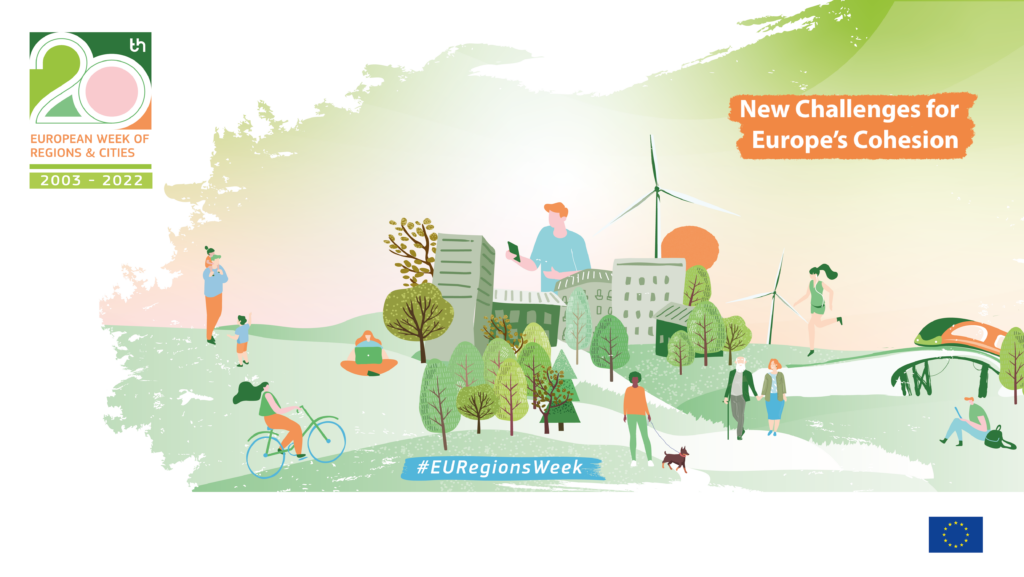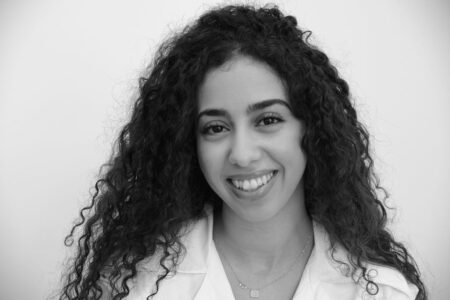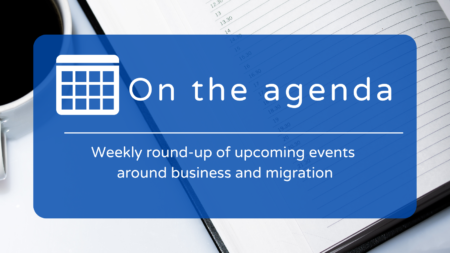
Image source: European Week of Regions and Cities 2022 (see use guidelines here)
Young migrants as agents of change: Stories of participation and inclusion
#EURegionsWeek Workshop
As part of this year’s European Week of Regions and Cities, UNITEE, in collaboration with INTEGRIM Lab and Eurocities, partners of the MILE and UNITES projects, hosted an online workshop titled “Young migrants and cities – new pathways for local participation and inclusion” with around 50 participants. The event focused on shaping narratives around the movement, local inclusion and participation of young newcomers in Europe and featured stories of migration from Razan Ismail (Asociación Kudwa), JuanFra Alvarado Valenzuela (University of Amsterdam of Applied Sciences) and Bohdan Yeromenko (Promote Ukraine).
The session was recorded, you can watch it here. In additon, the session was illustrated by Blanche Ellis, creating a graphic recording. You can see the graphic recording here.
In their accounts, Bohdan, Razan and JuanFra reflected on some of the challenges they faced when settling in Europe as young migrants as well as the opportunities, support and lasting connections they found as they started studies or jobs, started their own initiatives and businesses. Together with Elisabeth Ries, City Councillor for Youth, Family and Social Affairs at the City of Nuremberg in Germany and the workshop participants, they exchanged their visions of inclusive cities. Moreover, they discussed the potential of young migrants and agents of change, innovation, development and social cohesion.
Meanwhile, Elisabeth Ries shared the experience and approach of Nuremberg, a city that has a long history of migration and integration and where local governmental bodies are working to support migrants and meet their needs in local decision-making.
We are trying to create our city’s policies so that they are inclusive for everyone. In Nuremberg, two-thirds of young people have some sort of international background: parents or grandparents who migrated here.
Elisabeth Ries, City of Nuremberg
One key takeaway from the session was the need for two-way interactions between newcomers and long-term migrants. Newly arrived migrants and refugees can need a variety of support, ranging from administrative guidance to someone who can lend an ear in difficult times. To this end, cities could involve migrants who have already learned to navigate the city and are further along in their integration process, to support newcomers, share their experiences and help with things like language and cultural barriers. Not only can migrant communities support the integration of newcomers but also help long-term migrants to feel needed and connected in their cities as they are given the space to share their skills and experience with others.
It is very important to realise that you yourself can be helpful and have much to give others. You have skills, knowledge, and connections - please come and help us as a society to reach newcomers and help them in their integration.
- says Elisabeth Ries, addressing young migrants coming to Europe.
For Razan Ismail, founder and director of Asociación Kudwa in Spain, her experiences as a young migrant led her to do exactly what Elisabeth encourages. Originally from Syria and having worked in the UK before coming to Spain, Razan founded Kudwa in an effort to support in particular Arabic-speaking newcomers, especially women, who are starting their integration journey in Barcelona.
Having access to friendships with locals or with people who have the same objective as you - that can make a big difference.
Razan Ismail, Asociación Kudwa
Bohdan Yeromenko migrated several times within Europe: originally from Ukraine, he moved to Austria to work in technology before eventually ending up in Brussels working as an IT consultant. He now spends his free time volunteering for Promote Ukraine as an IT coordinator. Promote Ukraine works on advocating for Ukrainians in political, business and non-governmental circles in the EU. Since Russia’s invasion of Ukraine, the organisation has started initiatives supporting the integration of Ukrainians arriving in Belgium.
Meeting people who are facing similar problems will allow you to build a community, and it will help you learn tips and tricks on how to get through this difficult transition period.
Bohdan Yeromenko, Promote Ukraine
JuanFra Alvarado Valenzuela shared his story with workshop participants through a recorded video. Originally from Ecuador and now living in the Netherlands, he is a researcher and educator focusing on migration and diversity in entrepreneurship. He suggests universities should take a critical look at how diverse their student body is and re-examine their entry requirements to allow more people with diverse backgrounds and lived migration experience to pursue their studies in Europe.
He also reminds young migrants to not be afraid to ask for help and to not forget to offer their help and share their experience and skills with others.
Young migrants have so many skills, so much knowledge, and so much experience on how the world is changing nowadays. This is very valuable, and this can be given to other people.
JuanFra Alvarado Valenzuela, University of Amsterdam of Applied Sciences
Cities, institutions, and authorities also have a role to play in creating platforms to allow for this exchange of support. Aside from offering physical spaces for meetings, cities can foster interactions by utilising technological advancements, for instance by setting up Facebook or Whatsapp groups and thus bringing together newcomers and long-term migrants. Decentralising support this way can lower the pressure on municipalities and cities, which may have limited capacities and struggle to offer certain types of support, services, or spaces. A further point raised during the workshop is the lack of diversity in their decision-making bodies of many municipalities.
Newcomers, long-term migrants, and cities all have a role to play in the successful integration of young migrants. If they all do their share of the work, the integration process can be smoother and more successful, leading to a more cohesive and diverse Europe.
The European Week of Regions and Cities has been the yearly hub of EU cohesion policy for the past 19 years. In 2022, the event took place from 10-13 October, and it was organised in a hybrid format: it combined physical networking and Q&A sessions with online presentations. The themes of this year’s event were more relevant than ever, centering around the topics of the green transition, territorial cohesion, digital transition, and youth empowerment.
The session was illustrated by Blanche Ellis, creating a graphic recording. You can see the graphic recording here.
UNITEE, Eurocities and INTEGRIM Lab are part of the MILE project, an initiative funded by the EU which works towards promoting collaboration between migrant communities and local policy-makers. Read more about the MILE project here.
Eurocities and UNITEE are also part of the UNITES project, funded by the EU and aiming to advance the involvement of migrants in integration policies.


